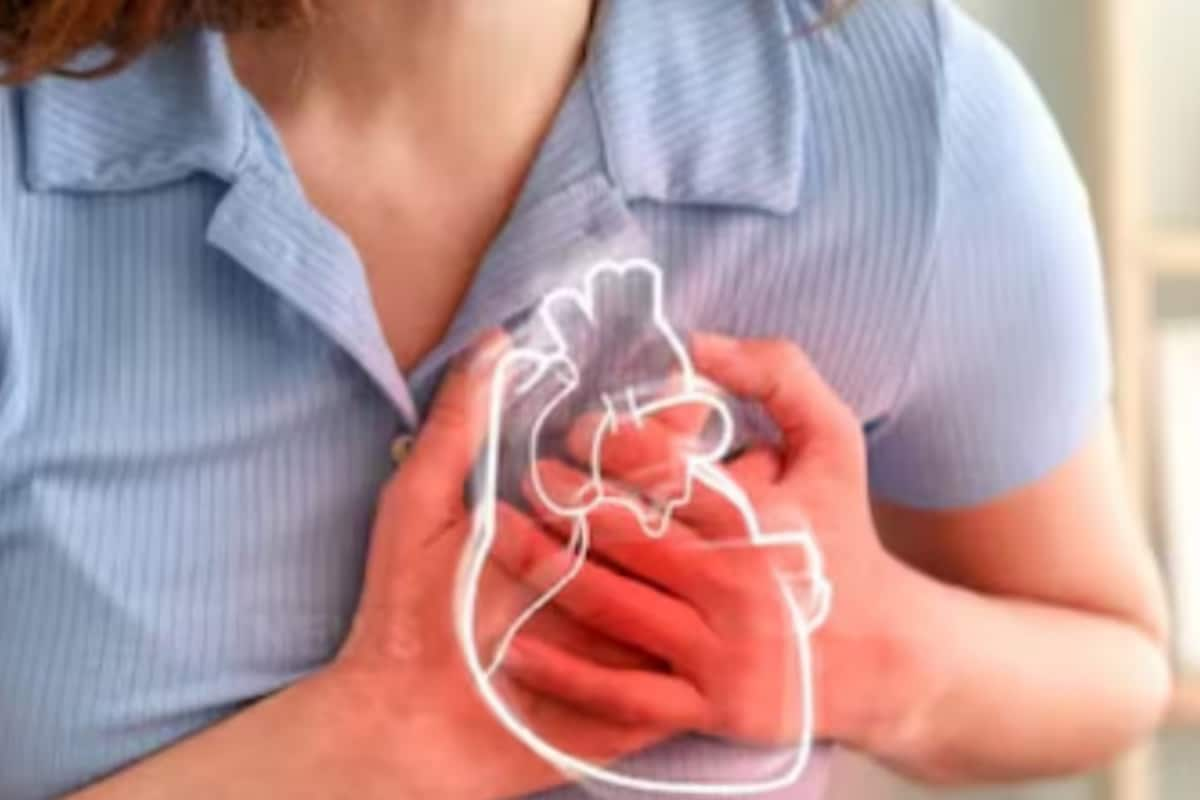Lifestyle
Young Women Face Rising Heart Attack Risk, Study Indicates

A recent study conducted by the Mayo Clinic has uncovered that over 50% of heart attacks in women under the age of 65 are not caused by blocked arteries, challenging long-standing beliefs about heart disease. Instead, these heart attacks often stem from lesser-known conditions, raising significant concerns about cardiovascular health in younger women.
Since the onset of the COVID-19 pandemic, there has been a notable increase in heart attack cases not only among older adults but also among younger populations. Traditionally, heart attacks are attributed to artery blockages due to factors such as high cholesterol. However, the findings of this comprehensive 15-year study reveal a different picture, particularly for women.
Understanding the Causes Beyond Blocked Arteries
The Mayo Clinic research indicates that conditions like Spontaneous Coronary Artery Dissection (SCAD), coronary embolism, severe infections, and anaemia are significant contributors to heart attacks in younger women. SCAD, for instance, occurs when the inner wall of a coronary artery tears or ruptures, leading to a disruption in blood flow. This can ultimately result in a heart attack, particularly in otherwise healthy women who do not exhibit traditional risk factors.
The study highlights that SCAD is often misdiagnosed as a standard heart attack caused by plaque accumulation, which can lead to inappropriate treatment protocols. Factors such as hormonal changes, particularly after pregnancy, and genetic predisposition may heighten the risk of SCAD and other non-plaque-related heart attacks.
The Broader Implications of the Findings
Other conditions identified in the study, such as coronary embolism, occur when a blood clot or foreign object blocks blood flow in the heart’s arteries. Severe infections and anaemia also place additional strain on the heart, potentially triggering heart attacks in susceptible individuals. Alarmingly, the research indicates that heart attacks resulting from these non-traditional causes often have higher five-year mortality rates compared to those caused by atherosclerosis.
This revelation underscores the need for healthcare professionals to reassess their diagnostic approaches. If physicians continue to primarily attribute heart attacks to atherosclerosis, conditions such as SCAD may go unnoticed, leading to misdiagnosis and ineffective treatment strategies.
The Mayo Clinic researchers advocate for a more tailored treatment approach that considers the underlying causes of heart attacks. For example, in cases of SCAD, conservative management may be more beneficial than invasive procedures like stent placement.
As the medical community grapples with these findings, the implications for young women’s health are profound. Increased awareness of these lesser-known risk factors could lead to improved outcomes and potentially save lives. Understanding the complexities of heart health in younger women is essential for fostering better prevention and treatment strategies in the years to come.
-

 World5 months ago
World5 months agoSBI Announces QIP Floor Price at ₹811.05 Per Share
-

 Lifestyle5 months ago
Lifestyle5 months agoCept Unveils ₹3.1 Crore Urban Mobility Plan for Sustainable Growth
-

 Science4 months ago
Science4 months agoNew Blood Group Discovered in South Indian Woman at Rotary Centre
-

 World5 months ago
World5 months agoTorrential Rains Cause Flash Flooding in New York and New Jersey
-

 Top Stories5 months ago
Top Stories5 months agoKonkani Cultural Organisation to Host Pearl Jubilee in Abu Dhabi
-

 Sports4 months ago
Sports4 months agoBroad Advocates for Bowling Change Ahead of Final Test Against India
-

 Science5 months ago
Science5 months agoNothing Headphone 1 Review: A Bold Contender in Audio Design
-

 Top Stories5 months ago
Top Stories5 months agoAir India Crash Investigation Highlights Boeing Fuel Switch Concerns
-

 Business5 months ago
Business5 months agoIndian Stock Market Rebounds: Sensex and Nifty Rise After Four-Day Decline
-

 Sports4 months ago
Sports4 months agoCristian Totti Retires at 19: Pressure of Fame Takes Toll
-

 Politics5 months ago
Politics5 months agoAbandoned Doberman Finds New Home After Journey to Prague
-

 Top Stories5 months ago
Top Stories5 months agoPatna Bank Manager Abhishek Varun Found Dead in Well









